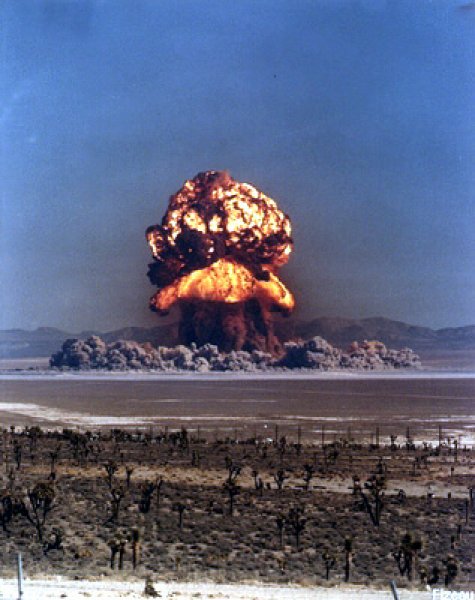Globally, if you ask people “do you support the use of a nuclear weapon?” most people will say “no.” Public opinion polls consistently reflect such anti-nuclear stances and norms. Citizens of EU states that host US nuclear weapons are in favor of a global nuclear weapons ban. Chinese citizens strongly oppose the use of nuclear weapons under any circumstances and a majority of Americans think that the very invention of nuclear weapons was bad. Even under the shadow of the Russia-Ukraine War, 85% of Central and Eastern Europeans reported in March 2022 that there are no situations in which using nuclear weapons would be morally justified.
Public attitudes on nuclear weapons do matter for two main reasons, which are intensified by the rise of populism along with nationalist and authoritarian leaders.
However, this public aversion toward nuclear weapons can erode.
In a recent experimental study that I conducted in Israel, I found that when faced with a threat to their security, respondents showed high support for nuclear use. In light of this, I explored why it is that people might deviate from anti-nuclear norms and become willing to endorse a nuclear strike against a foreign country. I found that when respondents are reminded of their own mortality, they are more likely to support a nuclear strike.
In other words, psychological mechanisms explain why people may violate the nuclear norm. Individuals move away from their existing moral principles and resort to an aggressive defense mechanism that they perceive as effective in destroying the root cause of an existential threat.
ISRAELI SUPPORT FOR A NUCLEAR STRIKE
Israeli support for a retaliatory nuclear strike in a real-life scenario is likely to be even higher than in the theoretical study. First, because the main finding for the support of the use of nuclear weapons in the study is based on a first strike by Israel. If an adversary uses nuclear weapons first, support for a retaliatory strike in response tends to be higher than a nuclear first strike. Second, respondents know that the study is based on a hypothetical scenario. When the reality of a nuclear threat intensifies, so would the existential concern and likely the support for extreme violence. Such existential concern could be triggered in form of catastrophic events or emergencies caused by terrorists, climate change, or public health.
It can be argued that Israelis are unique in their hawkish tendencies. However, the results of the same study surveying Americans showed similar support for nuclear use in the case of an existential threat. Further, the Israeli sample included Israeli Arabs in addition to Israeli Jews (in contrast to most studies that contribute to an alienation of the ethnic group by excluding them from polling). The Arab population in Israel tends to be significantly more dovish on the issue of the use of force, which one would expect to deflate public opinion supportive of the use of nuclear weapons. But their participation in the survey did not lessen the overall openness to nuclear weapons in the results.
WHY PUBLIC OPINION MATTERS
Why should we be concerned about public support for nuclear weapons when elites hold the power in nuclear policy? After all, the current debate on gun legislation in the United States shows that public opinion has little to no impact on federal policy. Even though the majority of Americans support stronger gun control policies, few changes have been made. But public attitudes on nuclear weapons do matter for two main reasons, which are intensified by the rise of populism along with nationalist and authoritarian leaders.
First, leaders and war advocates can use the public’s existential fear to their advantage by inflating threats. For example, former Russian President Dmitry Medvedev explained that non-nuclear threats which jeopardize the existence of Russia would be met with a nuclear launch, increasing the overall perceived threat level by Russian citizens. Moscow’s disinformation narratives of alleged existential threats to the country and regime have been even more prevalent since the start of the war in Ukraine, heightening the public’s existential fear.
Second, leaders might be more inclined to use a nuclear weapon if they believe they have their public’s support. If much of the electorate supports nuclear weapons, a leader might be more likely to take aggressive military action. After all, the public does influence elite opinion along with nuclear policy decision-making. Public opinion does not necessarily shift the general nuclear policy agenda, but it can embolden elites to make more hawkish decisions that they otherwise would not. Recent research findings also suggest that the public is unlikely to act as a strong restraint on leaders seeking nuclear weapons. Hence, not only can a supportive public embolden leaders to use a nuclear weapon in nuclear-armed states, but also to proliferate in non-nuclear weapons states.
It is essential to educate the public on the realities of nuclear use. People support the use of nuclear weapons because they believe them to have a distinctive military utility. Yet, often conventional weapons are just as effective in destroying an adversarial target (unless, for example, it is a deeply buried weapons storage). Beyond that, people need to understand the costs and consequences of such a strike. If aversion toward nuclear weapons can easily erode, public knowledge on nuclear weapons needs to be more robust to begin with.
Doreen Horschig, PhD is the Raymond Frankel Nuclear Security Policy Fellow at the American Academy of Arts and Sciences.
Statements, comments or opinions published in this column are of those of the author(s) and do not necessarily reflect the editorial policy of Warsan magazine. Warsan reserves the right to moderate, publish or delete a post without prior consultation with the author(s). To publish your article or your advertisement contact our editorial team at: warsan54@gmail.com

